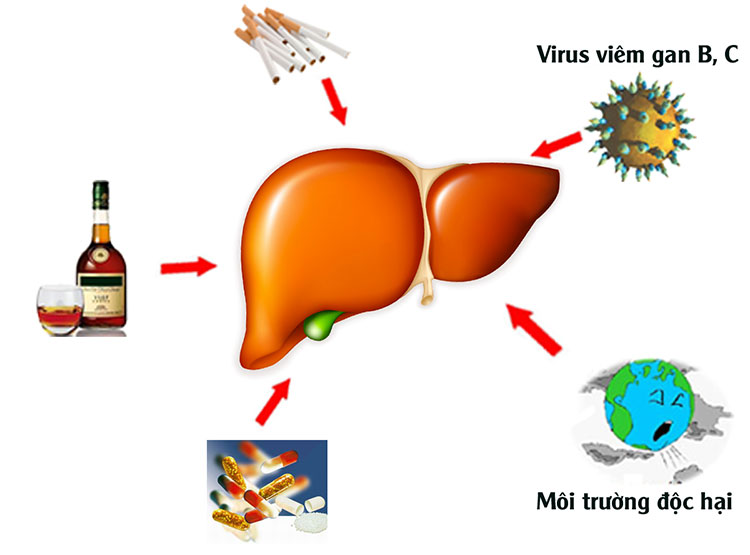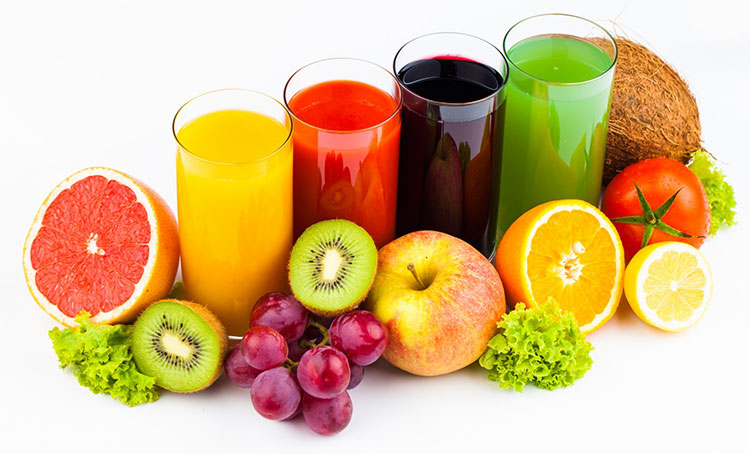Liver enzymes are high and how to reduce them without medication
If liver enzymes are elevated, this may indicate that the liver is damaged. If the doctor finds a slight increase in liver enzymes in a routine blood test, the recommended treatment in most cases is to suggest natural ways to lower this index.
The liver is one of the most important organs in the body and is responsible for certain functions that ensure that the body works properly. The liver cleans the blood, produces proteins that help the blood clot, processes cell waste, produces nutrients, and stores vitamins and helps the body produce glucose.
Any one of the above mentioned disorders can lead to serious complications. Therefore, to detect the early damage of the liver, you need to have some blood tests to assess liver function, which are commonly tested for liver enzymes or liver enzymes. If elevated liver enzymes are present, this may indicate that the liver is damaged and you should talk to your doctor for a solution.

If liver enzymes are elevated, this may indicate that the liver is damaged.
What does elevated liver enzymes mean?
Increased liver enzymes can be caused by damaged liver cells and inflammation that releases certain substances into the tumor, leading to higher levels of release agents, such as liver enzymes.
In order to check the level of liver enzymes, the doctor usually prescribes the testing of two specific liver enzymes: aspartate aminotransferase (AST) and alanine aminotransferase (ALT) ; normal concentrations are: AST: 5 - 40 units per liter of serum; ALT = 7 - 56 units per liter of serum.
If the doctor finds a slight increase in liver enzymes in a routine blood test, treatment recommendations in most cases suggest natural ways to lower these enzymes, because liver enzymes may only increase. mild for a short time due to some common causes and not related to any serious problem at all.
Causes of elevated liver enzymes
There are a number of reasons for elevated liver enzymes and doctors can help you determine the cause and rule out serious diseases.
- Many drugs, especially cholesterol-lowering drugs and pain relievers containing acetaminophen, can increase liver enzymes.
- People who drink alcohol and obesity may reduce liver function and increase liver enzymes.
- Diseases such as hepatitis A, B, C, heart failure and non-alcoholic liver disease will also lead to higher levels of liver enzymes.
- There are some more serious diseases that can increase liver enzymes, including: celiac disease; infected with Epstein-Barr virus; cholecystitis or pancreatitis; hypothyroidism; Liver Cancer; heart failure; alcoholic hepatitis; autoimmune hepatitis; Cirrhosis.

Fruits and foods rich in vitamin C can help lower liver enzymes.
Natural ways to lower liver enzymes
- Eat plenty of green vegetables: A diet high in green vegetables can ensure that your liver is getting the vitamins and nutrients necessary for a healthy body and can reduce stored fat in the liver. Try to increase the amount of spinach and other green vegetables like broccoli and cabbage.
- Eat high-fiber foods: Foods high in fiber are a great way to help your body break down cholesterol and control liver enzymes well. These foods will also help increase the amount of bile produced by the liver, which can help break down fat. High-fiber foods like oats, beans, berries, nuts.
- Strengthening foods with antioxidant properties will help the liver work better . These foods do not reduce liver enzyme levels, but they help optimize liver activity. Anti-oxidant foods such as avocados and beets contain antioxidant flavonoids. Chestnuts are a source of omega-3 fatty acids and B vitamins, which are good for supporting the liver.
- Increasing the amount of vitamin C: Vitamin C is needed to increase immune resistance, promote recovery of liver cells, help reduce liver enzymes. Increase vitamins by using citrus, grapefruit, . and stay away from sugary drinks.
- Losing weight: If you are obese, you have a higher risk of developing liver enzymes. Weight loss is one of the most effective lifestyle changes to control liver enzymes. Keep body mass index (BMI) below 23 and above 18.5 (for Asians). If your BMI above 23 is overweight and over 25 is obese. Control waistline within allowed limits: men
- Exercise regularly: You need to maintain a positive lifestyle to stay healthy and support liver function well. Walk 30 minutes a day and at least 5 days a week. If you do not have 30 minutes to exercise, you can practice 10-15 minutes / time, several times a day. Some of the best exercises are jogging, walking, dancing and swimming.
- Drink enough water : You should drink at least 8 glasses of water a day, as this is the best way to ensure that your liver is effectively filtering waste. Drink water when you wake up and before going to bed at night, to make sure your body is always optimized for its functions.
- Quitting alcohol: Drinking alcohol is one of the easiest ways to damage your liver, so if you're trying to restore the level of liver enzymes, it's better to quit drinking alcohol. The more you reduce the amount of alcohol, the healthier your liver.
- Living in a good environment: It is possible that factors in your family or work environment contribute to increased liver enzymes. Try and use natural cleansing products, because many synthetic cleansing products contain toxins that can affect your liver. Always check any product you buy, choose a low-toxic ingredient in the ingredient that reduces the risk of exposure for the whole family. Need to ensure a smoke-free environment.
- Check your medications: There are some over-the-counter medications like acetaminophen and ibuprofen that can cause liver damage, especially when used long-term. Talk to your doctor when using painkillers to avoid damage to liver cells.
- 8 ways to reduce liver enzymes simply can be done
- High liver enzymes - close assassins
- The culprit causes an increase in liver enzymes
- Liver enzymes are high - a threat of Tet holiday
- Liver enzymes have a higher risk of cancer
- Tobacco can help fight nerve toxins
- 10 things you may not know about the liver
- The key to preventing colon cancer attacks the liver
- Using the right amount of coffee can help protect the liver
- Experts explain why cancer is soaring to the top
- Vitamin E may reduce the risk of liver cancer
- We have come closer to saving people by liver from the laboratory
 13 causes of non-itchy rash
13 causes of non-itchy rash How the mouse with human ears changed the world?
How the mouse with human ears changed the world? The truth about 'fried rice syndrome!
The truth about 'fried rice syndrome! What is dental implant?
What is dental implant?